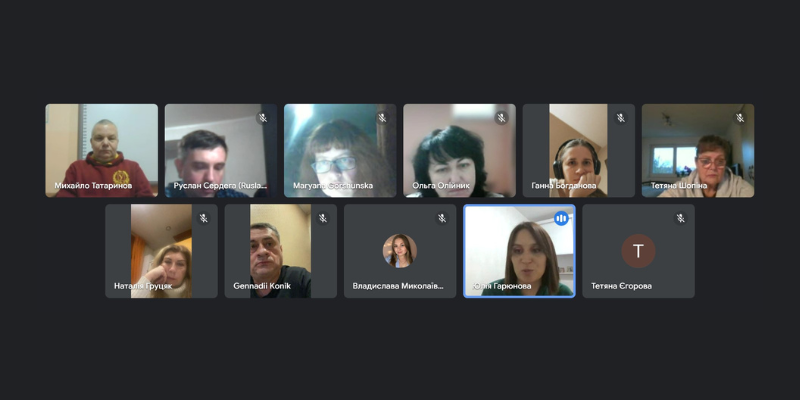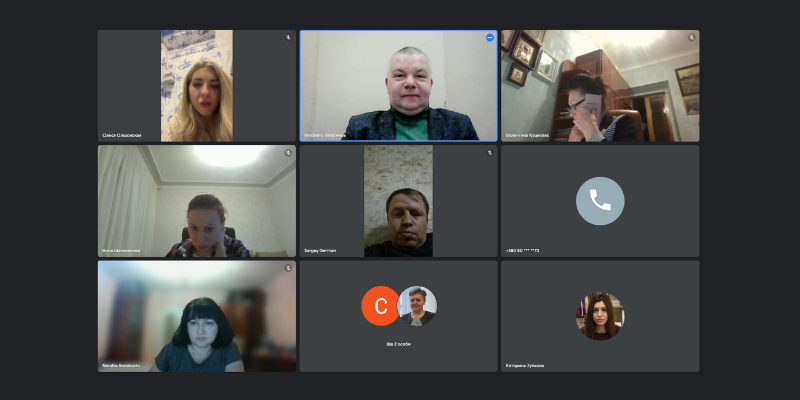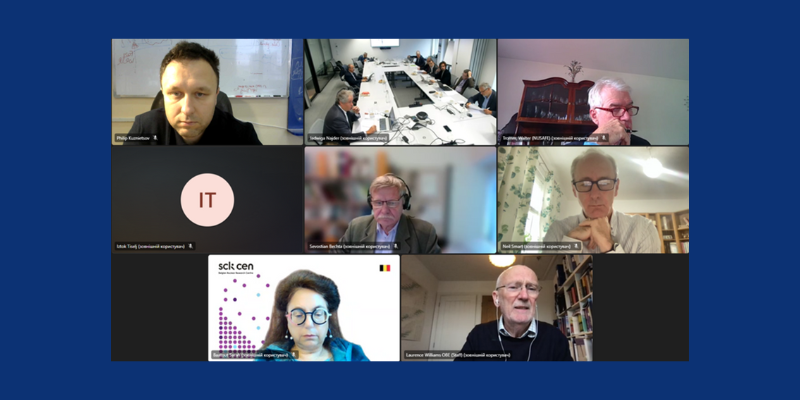Karazinites on the Frontline: Roman Malanchuk

Roman Malanchuk worked as an associate professor at the School of Medicine, contributing to its development before the full-scale invasion. Today, he serves as a combat medic in one of the military units on the frontlines. His tireless work and skills are saving the lives of our soldiers every day. Karazin University is raising funds to support combat medic Roman Malanchuk and his comrades.
Goal: 10,000.00 UAH
Bank card number: 5375 4112 0930 0982
Tell us about yourself, what were you doing before the full-scale war with russia?
Before the full-scale aggression by the russian aggressor, I was living my everyday life, engaged in my favorite work. There is a School of Medicicne at V.N. Karazin Kharkiv National University where I worked as an associate professor.
In addition, I was implementing my medical, orthopedic, and rehabilitation expertise into practice. We established the ARTZklinik medical center in Kharkiv, with several branches mainly in regional centers across Ukraine. We provided assistance and engaged in rehabilitative therapy for acquired spinal and joint disorders, injuries, degenerative and degenerative-dystrophic processes. We also introduced new methodologies, obtained patents for some inventions. We built, lived, and took care of our families, just like everyone else.
When and how did the full-scale war begin for you?
On February 24, 2022, my dog started barking loudly at the first air raid. I could clearly see that at 5 o'clock in the morning, I realized that a full-scale war, a full-scale invasion, had begun. After that, we took our children and evacuated them.
On the 26th, I arrived at the territorial conscription center in the town of Smila in the Cherkasy region, as I originally come from there, and it seemed there was no point in returning to Kharkiv. Since February 26, 2022, I voluntarily joined the service as a soldier, a private, in one of the territorial defense units in the city of Cherkasy.
What are the specific aspects of serving as a combat medic?
This question is quite extensive. You see, when you work as a doctor, specifically an orthopedic and trauma specialist, in civilian life, it's one thing. But being a combat medic during the early days of the conflict is all about challenges. There was no formal training, no tactical medical instructors, as it was the beginning of the war, marked by chaos and uncertainty.
So, practical skills that I had developed from my experience in trauma care at the Kharkiv Regional Clinical Trauma Hospital were invaluable. I conducted short but intensive training courses for my unit in areas such as stopping massive bleeding, restoring breathing, while also providing advisory and medical assistance as a family doctor.
All ailments, illnesses, and acute respiratory infections — it was spring, and the conditions were quite Spartan. So, I had to switch between roles as a family doctor and a combat medic.
The work of a combat medic involves systematic monitoring of their unit, continuous training in tactical medicine, and, of course, some bureaucracy, including maintaining regular journals, reports, and so on.
What motivates you and gives you the strength to keep going and continue the fight?
My country motivated me to volunteer. I'm committed to achieving victory. As long as the enemy is present on our territory, my comrades and I, those who are motivated, those who have made the personal decision to wear the uniform, are there for this purpose every day.
Have your personal beliefs and values changed during the war?
Yes, they have changed, but for the better. I have become more confident in what I do every day. Of course, such circumstances force you to learn, continuously improve yourself, and delve into issues that you couldn't have even thought about before. You need to be an organizer, a service chief.
A service chief has to bear the responsibility for the lives and health of their unit, the entire battalion, from the quality of the training provided to the constant monitoring and execution of daily, nightly, and around-the-clock tasks. They all lead to one thing: preserving the lives and health of the servicemen.
Tell us, what did your work at the university provide for you, not only professionally but also spiritually?
In my opinion, it was like taking a step into the unknown, something interesting, with many new disciplines, systematic learning of subjects, experiences, and very charismatic people who influenced my choice of profession and fueled my passion for this dream.
I would say the university was like a springboard in life that allowed me to master the profession I have now. It was the starting point.
Tell us, what exactly do you do in your positions, and which case stands out the most in your memory?
As for my duties, there are many memorable cases. The work of the chief of the medical service and the chief of the medical point involves organizing measures to ensure the lives and health of all personnel in the battalion.
The entire medical service personnel at the medical point must continuously improve their training, starting with the MARCH system, recommended by the Tactical Combat Casualty Care Committee.
Senior combat medics in a platoon who have undergone this training also instruct the platoon medics. The platoon medic is responsible for the medical care of their platoon and provides consultative and informative assistance on the proper application of tourniquets, stopping bleeding, bandaging, occlusive dressings, methods, and means of evacuating wounded personnel from the battlefield. They are actively engaged in combat duties in the operational zone and are on the front lines. Therefore, it cannot be said that someone's job is easier or harder; they all share the same level of responsibility.
The entire personnel of the medical unit, who have higher qualifications compared to the average medical staff and junior personnel (instructors, paramedics), regularly take part in combat rotations at medical stabilization points, stabilization points, and level 3 treatment points. They are directly involved in providing first aid, medical assistance, and evaluating the care provided to those who have already received help at the earlier stages of injury. They are responsible for stabilizing injured military personnel and evacuating them to the next stage of medical evacuation.
These are military medical hospitals or other facilities where the next phase of evacuating the wounded is organized. Military medicine is a hard work that shapes a person's character and attitude. There is no time to relax; there are no free hours. In the army, there is a saying, "When you have an opportunity, sleep or eat" (laughs).
Unfortunately, these are the realities of today - very little rest, very little time for oneself. I'm not even talking about entertainment; it's practically nonexistent.
As for how satisfied I am with the team in my medical service unit, I can say that they can serve as an example for other units and battalions. These professionals essentially work as assistant doctors, anesthesiologists, surgeons, and trauma specialists just a month or two after in real-world conditions. They work alongside the doctors with no less responsibility for their work and the assistance they provide according to the regulations and protocols used in delivering wounded personnel to the stabilization point.
Of course, first impressions leave the most lasting memories. The first impression at the stabilization point (I'm not talking about my work as a senior combat medic in another unit) is, of course, when you see bloodied soldiers being quickly brought in from the battlefield. And the doctor faces a difficult choice – whether to amputate a limb or not, whether it will heal or not. Tourniquet syndromes, delays in reevaluation, tourniquet conversions. Unfortunately, we often have to learn from our own mistakes.
Every day, every specialist, every soldier in our unit grows. They grow morally to the point that it becomes automatic. Even when someone is half-asleep and tired, a wounded soldier is brought in, and everything is done according to the same regulations, the same protocol. And I'm glad that this does not break the spirits of my comrades who are there, and thanks to them, people stay alive and healthy. That's the most important thing.
Well, the first case that stood out might have been when they stabilized the first guy, who had a blast injury and a gunshot fragment wound to the left forearm at the elbow level. After the assistance provided, pain relief, and stopping the bleeding, they put him on the evac vehicle, forgetting his kit. I took his kit and realized that his arm was in it. Perhaps that's the impression that stands out the most.
And then, there are endless limbs. The smell of blood, dampness, and death. That's what we see every day while doing our job.
Is your unit involved in direct battlefield evacuations?
No, the medical unit is not supposed to do that. Combat medics from the units are responsible for battlefield evacuations. The senior combat medic of the platoon may involve available soldiers for this purpose, but it's all done according to the protocol, in the presence of tactical conditions, the absence of a red zone, no mortar or artillery shelling, no contact battles. Only under such circumstances are they allowed to be part of the evacuation process.
But everyone thinks that they have been wounded on the battlefield: "Hey, combat medic, I'm here." Unfortunately, the reality is that combat medics have to convey to the personnel, including with our help, that the best help is self-help, of course, if the injured person has not lost consciousness.
Every serviceman is trained to understand that self-help is the fastest thing one can do. That's why in our daily life, even when we come to a city like Kharkiv, we carry tourniquets with us.
Will it be difficult for you to return to civilian life once the war is over?
It's extremely hard for me to see young healthy guys strolling in the city. There are two parallel realities, to be frank. They are the ones shooting at us, the military. When we go to the city and see all this peaceful life, it shocks us a bit. I've had that question in my mind.
Will it be difficult? Yes, probably it will be difficult for me to readjust. What do these guys get in return? They sacrifice their health and lives so that there's peace here. There's a bit of dissonance; my stereotypes are a bit shaken. Cafes, restaurants, bicycles, gyms, pools, and all the things I've never experienced, to me, it's a bit wild, I must admit.
Knowing what's happening there, it's a lot to take in and then seeing a different picture here, even though it's how long? Three hours of traveling completely changes our lives here. There's a buffer zone a bit further away, about 100 kilometers, and everything else is a different life, a different planet.
It's morally challenging to understand those people who somehow think that someone else, not me, will handle it. Why is that?
In other aspects, I believe you quickly adapt to the good. I think it will be quick, of course. To worry only about the moral aspect of the civilian side that you see. I understand the children, women, the elderly, the frail, I understand those who perform their functions, their jobs here, and they provide the support for the front. Because if the rear is forgotten, the front will forget too, and vice versa. They complement each other.
I don't see anything wrong if some companies, businesses really help what we're going through, and thanks to them, we have evacuation vehicles, cars, a repair base, and all the assistance, such as medical equipment. Thanks to such volunteers as United Help Ukraine, Hanna Yabluchanska, the "Medgarant" medical center, the city of Cherkasy, Kvіtka Valentyna Mykolaivna, and many others. Those who were able to provide what we desperately needed at the early stages and now, particularly consumables – they're not always available on time. I understand such people; with them, I would say we can fight calmly.
Is it the state or the volunteers who provide more of what you need?
No, currently, the state provides us with much more than at the beginning of these actions, and they help. But if you want it quickly, efficiently, and practically, it's the volunteer assistance.
Lately, there has been an opportunity to order what you need from your superiors, in terms of service. The main supply lines are taken care of.
What are your plans for the future?
My immediate plans are to continue my service, to help, to save the lives and health of our servicemen and not just our units. Personally, I believe in a gradual and slow process of liberating all territories.
Given the current state of affairs where we are, in the conflict zone, I can say the following: there is no going back. Our families are here, our children are here, this is our land, our homes, our apartments, it's everything we've worked for all our lives. There should not be a point where we can surrender and say that we are weak or lacking willpower. No, we don't even entertain such thoughts or questions.
Can you give advice or guidance to Kharkiv students and the wider community who will read this interview?
I would like to wish Kharkiv students or young people who have come here to get an education to be like a sponge, absorb everything that is given to you. This is a unique opportunity, I think, in your life, you may have such powerful access to knowledge, these are extraordinary opportunities. It's only the desire. Considering the student's desire, anything is possible. These are exceptional opportunities in life. It's your choice of the profession you have dreamed of. It is unforgettable, and thanks to Kharkiv University, you become who you have dreamed of becoming.



.jpg)
.jpg)
.png)

.jpg)
.jpg)

.jpg)

.jpg)